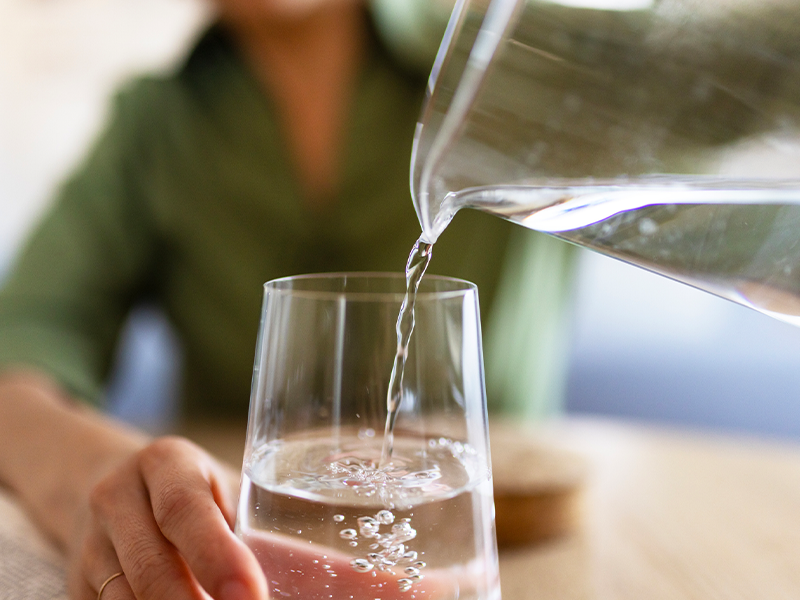Water quality plays a role that nothing else can replace, in everyday life, but not all water is the same. In fact, the difference between hard and soft water affects everything from plumbing durability to soap efficiency. Hard water contains higher levels of minerals like calcium and magnesium, which can lead to buildup in pipes and appliances. Soft water, on the other hand, has fewer minerals, making it gentler on skin, hair, and household systems. Wondering how this concerns you? Read on!
Understanding Hard Water
Hard water contains high levels of minerals, mainly calcium and magnesium, which it picks up as it moves through rock and soil. While not harmful to health, these minerals can cause several household and plumbing issues.
One major drawback of hard water is mineral buildup, which can clog pipes and reduce the efficiency of water heaters and other appliances. Over time, this scale buildup can lead to higher maintenance costs and shorten the lifespan of plumbing systems.
Hard water also affects cleaning performance. The minerals in it react with soap, making it harder to lather and leaving behind a residue on dishes, laundry, and bathroom surfaces. This can result in dull-looking clothes, streaky glassware, and a filmy layer on sinks and tubs.
Understanding Soft Water
Soft water has low mineral content, meaning it doesn’t leave behind deposits that can clog pipes or coat fixtures. Unlike hard water, it flows through plumbing systems without causing scale buildup, reducing maintenance concerns.
One key advantage of soft water is its ability to enhance the effectiveness of soaps and detergents. Without interfering minerals, soap lathers more easily, leading to cleaner dishes, brighter laundry, and residue-free surfaces.
Because soft water doesn’t cause mineral buildup, it helps extend the lifespan of household appliances and plumbing systems. Water heaters, dishwashers, and washing machines operate more efficiently, leading to fewer repairs and lower maintenance costs.
Soft water also makes everyday tasks easier by improving water efficiency and simplifying cleaning routines.
Comparing Hard and Soft Water
The key difference between hard and soft water is in their mineral content. Hard water contains high levels of calcium and magnesium, while soft water has minimal mineral presence. This difference affects water quality, appliance performance, and maintenance needs.
Hard water tends to leave mineral deposits on plumbing fixtures and household surfaces, leading to scale buildup that can clog pipes and reduce efficiency. In contrast, soft water prevents this buildup, helping surfaces stay cleaner and fixtures last longer.
Plumbing systems and water-dependent appliances also respond differently to each type. Hard water can strain pipes and shorten the lifespan of appliances due to mineral accumulation, whereas soft water allows them to function more efficiently with less wear.
When it comes to cleaning, soft water enhances the effectiveness of soaps and detergents, producing better results with less effort. Hard water, on the other hand, often leaves behind residue and makes cleaning more challenging.
Why Water Softening Matters for Your Home and Business
Water softening helps prevent mineral buildup in plumbing systems, improving the efficiency of water-dependent appliances in both residential and commercial settings. By reducing scale deposits, it lowers maintenance costs and extends the lifespan of fixtures and equipment.
Hard water can clog pipes and reduce appliance performance over time, while soft water allows soaps and detergents to work more effectively, leading to cleaner surfaces and smoother operation.
A water softening system also minimizes strain on appliances and plumbing, preventing frequent repairs and ensuring long-term efficiency. This saves money and enhances daily operations by maintaining a consistent water quality.
In homes and businesses, soft water supports better cleaning, improved appliance function, and overall operational efficiency, making it a worthwhile investment.
Innovative Solutions for Water Softening
Modern water softening systems use resin exchange technology to remove minerals like calcium and magnesium, preventing scale buildup on fixtures and appliances. This process helps maintain plumbing efficiency and extends the lifespan of water-dependent equipment.
Magnetic treatment devices modify the properties of minerals to reduce deposit formation. These systems provide a chemical-free alternative for managing hard water without adding extra substances to the water supply.
Reverse osmosis systems filter water through a semipermeable membrane, effectively reducing mineral levels. This method offers a practical solution for those looking to maintain balanced water quality.
Hybrid water softening systems combine ion exchange and filtration technologies for comprehensive water treatment. By preventing scale buildup and improving water quality, they help protect plumbing and enhance appliance performance.
Don’t Leave Your Water Quality to Chance!
At Innovative Water Solutions Laboratories, we specialize in ensuring clean, safe water for homes and businesses across New Jersey. As the leading PWTA testing company, we provide accurate, reliable water analysis to help you make informed decisions about water treatment. Whether you’re dealing with hard water issues, potential contaminants, or simply want peace of mind, our expert testing services deliver the answers you need. Don’t leave your water quality to chance—schedule a consultation with us today!





